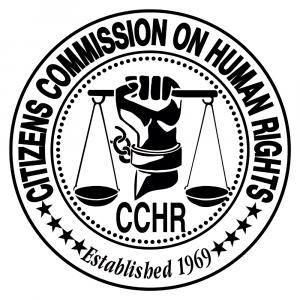
Even Low Levels of Air Pollution Increase Risk of Depression and Anxiety, Study Says
New research is first to report significantly increased risks of both depression and anxiety tied to common air pollutants.
WASHINGTON, DC, US, February 8, 2023 /EINPresswire.com/ -- Long-term exposure to even low levels of several common air pollutants significantly increased the risk of depression and anxiety, a new study confirmed.
Researchers analyzed the health data of nearly 400,000 people in the United Kingdom against estimates of common air pollutants at each person’s home address over a 10-year period.
The results indicated that the risks of depression and anxiety were significantly higher with long-term exposure to even low levels of several common air pollutants: small particulate matter, nitrogen dioxide, and nitric oxide. The pollutants increased the risk of depression by 16% and the risk of anxiety by 11%.
“This study indicates that when patients present with depression and/or anxiety symptoms, their place of residence and work should be considered as a contributing factor,” said study investigator Frank J. Kelly, PhD, professor and chair of community health and policy at Imperial College London. [1]
The study’s researchers urged further action on reducing air pollution levels as important protection for mental health. “Identifying the modifiable environmental risk factors of anxiety and depression and developing preventive interventions constitute an urgent public health priority,” they wrote.
Recent research has pointed to other environmental factors that negatively impact mental health. The noise from traffic in the vicinity of schools is making it significantly harder for young students to pay attention, increasing the risk that the children will be diagnosed with attention-deficit hyperactivity disorder (ADHD) and prescribed psychiatric drugs.
Children’s exposure to lead, a toxic metal, can also cause children to become overactive or inattentive, risking diagnosis and treatment for ADHD instead of getting treatment for the lead. Recent research found that half of U.S. children under the age of 6 had detectable levels of lead in their blood. [2] No safe level of lead has been determined for children, and lead poisoning can occur at very low levels of lead exposure. [3]
“The first signs of lead poisoning in children are often subtle neurobehavioral problems that adversely affect classroom behavior and social interaction,” according to the Agency for Toxic Substances and Disease Registry of the CDC.
Such research points to removing or further mitigating environmental factors tied to adverse mental health conditions as both a public health and public policy priority, with the aim of eliminating treatment for people suffering from mental health issues as a result of the environment in which they live, work, and go to school.
The Citizens Commission on Human Rights (CCHR) recommends a complete physical examination with lab tests, nutritional and allergy screenings, and a review of all current medications to identify any physical or environmental causes of depression, anxiety, or other unwanted mental and emotional symptoms, which might otherwise be misdiagnosed as a psychiatric disorder and incorrectly treated.
CCHR was co-founded in 1969 by members of the Church of Scientology and the late psychiatrist and humanitarian Thomas Szasz, M.D., recognized by many academics as modern psychiatry’s most authoritative critic, to eradicate abuses and restore human rights and dignity to the field of mental health. CCHR has been instrumental in obtaining 228 laws against psychiatric abuses and violations of human rights worldwide.
The CCHR National Affairs Office in Washington, DC, has advocated for mental health rights and protections at the state and federal level. The CCHR traveling exhibit, which has toured 441 major cities worldwide and educated over 800,000 people on the history to the present day of abusive and racist psychiatric practices, has been displayed at the Congressional Black Caucus Foundation Annual Legislative Conference in Washington, DC, and at other locations.
[1] https://www.medscape.com/viewarticle/987771
[2] https://newsroom.questdiagnostics.com/2021-09-28-Over-Half-of-U-S-Children-Have-Detectable-Levels-of-Lead-in-their-Blood,-Finds-Quest-Diagnostics-Health-Trends-R-Study-Published-in-JAMA-Pediatrics
[3] https://www.cuimc.columbia.edu/news/lead-poison-and-children-no-amount-lead-safe
Anne Goedeke
Citizens Commission on Human Rights, National Affairs Office
+1 202-349-9267
email us here
Visit us on social media:
Facebook
Psychiatrist Hyla Cass: First Do No Harm
EIN Presswire does not exercise editorial control over third-party content provided, uploaded, published, or distributed by users of EIN Presswire. We are a distributor, not a publisher, of 3rd party content. Such content may contain the views, opinions, statements, offers, and other material of the respective users, suppliers, participants, or authors.



